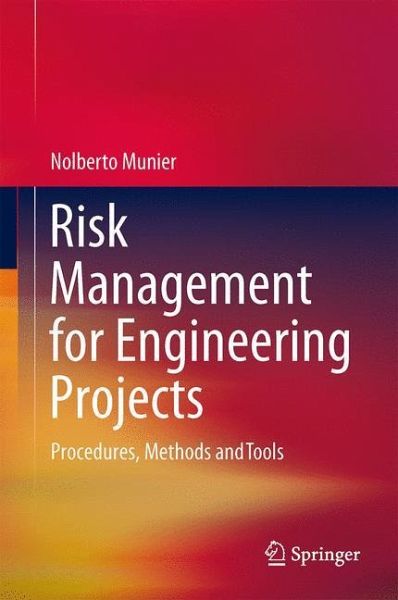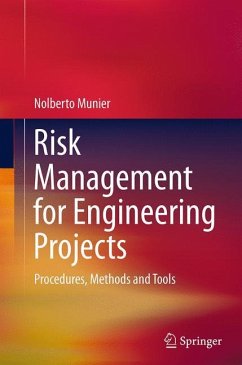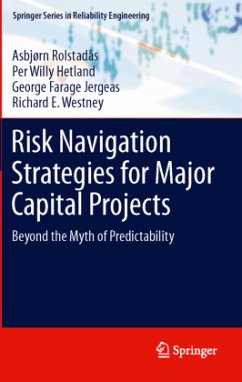
Risk Management for Engineering Projects
Procedures, Methods and Tools
Versandkostenfrei!
Versandfertig in 6-10 Tagen
68,99 €
inkl. MwSt.
Weitere Ausgaben:

PAYBACK Punkte
34 °P sammeln!
Covers the entire process of risk management by providing methodologies for determining the sources of engineering project risk, and once threats have been identified, managing them through: identification and assessment (probability, relative importance, variables, risk breakdown structure, etc.); implementation of measures for their prevention, reduction or mitigation; evaluation of impacts and quantification of risks and establishment of control measures. It also considers sensitivity analysis to determine the influence of uncertain parameters values on different project results, such as co...
Covers the entire process of risk management by providing methodologies for determining the sources of engineering project risk, and once threats have been identified, managing them through: identification and assessment (probability, relative importance, variables, risk breakdown structure, etc.); implementation of measures for their prevention, reduction or mitigation; evaluation of impacts and quantification of risks and establishment of control measures. It also considers sensitivity analysis to determine the influence of uncertain parameters values on different project results, such as completion time, total costs, etc. Case studies and examples across a wide spectrum of engineering projects discuss such diverse factors as: safety; environmental impacts; societal reactions; time and cost overruns; quality control; legal issues; financial considerations; and political risk, making this suitable for undergraduates and graduates in grasping the fundamentals of risk management.












